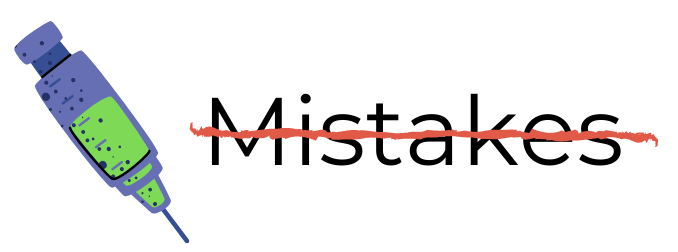Good morning and welcome to COVID Transmissions.
It has been 473 days since the first documented human case of COVID-19. In the year 473, a Visigothic invasion of Italy was turned back by the Western Roman Emperor Glycerius, one of the last to rule in the Western Empire. Unlike Rome, COVID-19 isn’t over, as we’ll discuss in today’s newsletter.
That said, we have reached another weekend, and spring is coming soon. I hope you all get some time to get outside and enjoy yourselves.
As usual, bolded terms are linked to the running newsletter glossary.
Keep COVID Transmissions growing by sharing it! Share the newsletter, not the virus. I love talking about science and explaining important concepts in human health, but I rely on all of you to grow the audience for this, which you can do by using this button here:
Now, let’s talk COVID.
Vaccine diplomacy: Italy refuses to export 250,000 AstraZeneca vaccine doses to Australia in light of shortages
The EU is currently in a dispute with AstraZeneca over a reduction in the vaccine supply that the company says it can provide. On the back of that dispute, the country of Italy has used EU trade laws to stop the export of 250,000 doses of the AstraZeneca vaccine to Australia: https://www.cnn.com/2021/03/04/europe/italy-astrazeneca-doses-australia-intl/index.html
This is a nasty situation. On the one hand, the Europeans wish to protect their citizens. On the other hand, everyone in the world deserves to be vaccinated. No country is more important than any other.
The solution to these kinds of disputes is “simple”: expand the vaccine supply. Nothing right now is more important than that, at least when it comes to ending the pandemic.
COVID-19 isn’t over
There is a future to COVID-19 where we beat the pandemic, because we have effective and widely-deployed vaccines. Unfortunately, I am getting the impression that many policymakers and leaders are at the point where they believe the existence of these vaccines directly implies their wide availability. US States—even ones that I did not expect to do this—are starting to lift restrictions on gatherings effective this month. This includes Texas and Mississippi, but it also includes New York and Connecticut. New York is being the most conservative of these, but I think even what’s being done here is reckless.
The thing is, it’s going to take time to deploy the vaccines. Right now I anticipate that the pandemic will no longer be meaningfully impacting the US by 2 to 4 months from now, provided that vaccine delivery and uptake continues at a reasonable pace.
However, right now, the US is still at about 65,000 new cases per day. That’s a tremendous case burden compared to many countries. With many variants circulating, some of which have a boost to their spread, we don’t know if we can maintain the downward trend in the epidemic in the US. But, states are opening back up, as I mentioned.
This makes me concerned about how people will act once vaccines are widely available. I think it is clear that SARS-CoV-2 will become an endemic virus among humans, like the common cold coronaviruses. With exposure in childhood, or with vaccination, most of us will experience very little impact from this virus. We may learn more from this process about what the circulating human coronaviruses do to people. We may also learn about conditions like ME/CFS, which cause symptoms similar to what many people are experiencing in “Long COVID.” There is a lot of new information to be discovered.
On the other hand, that world where SARS-CoV-2 is a rare endemic infection of childhood requires either a lot of vaccination or a lot of COVID-19. I am concerned that we might find some intermediate of the two, where many people get vaccinated and many others do not. This could make the transition to the less threatening future a lot bumpier.
An article in STAT news today looks at some of the possibilities for that future, and I think it’s a good read—well-balanced, reasonable, but also not overly rosy about what may happen. Have a look: https://www.statnews.com/2021/03/04/the-short-term-middle-term-and-long-term-future-of-the-coronavirus/
One thing I think the article is very right to point out is that we still don’t know how long vaccine-induced immunity will last. I’m inclined to think it will be rather durable, but I could just as easily be wrong. We will see.
As you all continue in the COVID-19 world that we live in, keep in mind that a vaccine is protection, but it is not perfect. Letting your guard down now while we still know very little could be dangerous in the long run. Please keep yourselves safe, while enjoying the benefits that vaccines can offer us.
What am I doing to cope with the pandemic? This:
Going Marie Kondo on my home
We’re moving! I’m throwing stuff out. Though, really, I am not asking what sparks joy. I am asking “would I be mad if I had to buy a replacement of this?”
And there are a lot of things for which the answer is “no.” It makes me think of George Carlin’s famous “stuff” routine.
Question for you all: This newsletter is soon to outlive its peak usefulness. While COVID-19 isn’t over, I do expect that it will begin to be less important in our daily lives in the next 2-4 months. Given that, I am considering the future of this newsletter and how it will play out.
When I started this newsletter, I had no idea how long it would take to get to this point. I wasn’t sure I would still be doing this 7 months later—and I had no idea how many relationships it would build. Those of you who have reached out to me regularly to ask questions or just to talk about the pandemic have become a bright spot in a dark time for me. I’ve heard that many of you have similar feelings about this newsletter.
So I’d like to pose to you: when the pandemic ends, should COVID Transmissions end? I could envision continuing to write a regular newsletter that covers a wider set of topics in virology, though perhaps not at a daily frequency.
I’ve created a poll here to collect responses: https://forms.gle/kF5Mu1eJxyix7uGg8
I’m interested in what you all think.
You might have some questions or comments! Send them in. As several folks have figured out, you can also email me if you have a comment that you don’t want to share with the whole group.
Join the conversation, and what you say will impact what I talk about in the next issue.
Also, let me know any other thoughts you might have about the newsletter. I’d like to make sure you’re getting what you want out of this.
Part of science is identifying and correcting errors. If you find a mistake, please tell me about it.
Though I can’t correct the emailed version after it has been sent, I do update the online post of the newsletter every time a mistake is brought to my attention.
No corrections since last issue.
See you all next time.
Always,
JS








As an ex-molecular biologist (changed fields), my thinking has been for some time that the 21st century is the century of viral diseases. Continuing COVID Transmissions with a focus on emerging viral diseases and treatments, including vaccine development, would be very informative. My vote would be to continue publication on a less frequent and less onerous schedule. Thanks for doing this for all of us.
In relation to your question - I'd love to see this newsletter continue but maybe also add in information about other virus-based infections in the US, like flu and other more novel things that might be developing, and also any new research in anti-virals and combating manifestations of virus-borne diseases.
I also just saw some data from PBS that only 1 child in this flu season has died from the flu in the US so far, as opposed to hundreds in more recent yrs. I'd love to see the current focus on mask-wearing when feeling ill, staying home/working from home more often especially when not feeling well, and general hygiene of washing hands and wiping down surfaces and updating HVAC systems to continue - hundreds to thousands of lives can be saved yearly (and even more morbidity can be avoided) just from these somewhat simple measures being kept in the public consciousness after this pandemic dies down.
I really hope we don't go back to 'business as usual' till we have another pandemic on our hands.